
7 Ways to Stay Hydrated (and How Hydration Impacts ADHD)
Managing your ADHD symptoms matters, and controlling those symptoms plays a big role in your quality of life. There are many strategies to choose from when it comes to ADHD. For example, if you struggle with time management, you might include some planning and organizing strategies in your daily routine.
But what about brain fog? Brain fog is a common ADHD symptom, and according to the experts at Harvard Health, brain fog (and task initiation and forgetfulness) can all be linked to ADHD.
Brain fog can also develop due to lack of sleep, not drinking enough water, and not eating enough protein, so it’s important to focus on self-care too.
Is lack of water exacerbating your brain fog symptoms? In this article, we’ll highlight seven strategies for staying hydrated.
7 Strategies for Staying Hydrated
Need help staying hydrated? Experts suggest that adults drink eight 8-ounce glasses of water each day, although this number can vary. You might need more fluid intake if you’ve been working out, live in a hot, dry climate, or if you’ve lost a lot of water through sweating.
You can support hydrating with these strategies:
- Add fresh fruit slices to the water for a fun treat! Lemon, strawberries, oranges, pineapple, and limes are particularly refreshing.
- Tip: slice each fruit very thin. The thinner the fruit, the more infused the water becomes.
- Add fresh herbs such as mint. (You can also combine fresh herbs with fresh fruit.)
- Keep a bottle with you at all times. It’s much easier to stay hydrated when your water bottle is already at your desk.
- Find a large water bottle. The larger it is, the less likely you’ll have to go refill it, making it more likely that you’ll log those ounces!
- Drink one glass of water as soon as you wake up — so you can start the day off right!
- If you exercise, be sure to bring water with you to the gym (or just keep it next to you if you work out at home.)
- Keep a pitcher of fresh water on your dinner table.
You can also log your glasses in an app or on a note-pad if it helps you keep track. The goal is to stay hydrated and build healthy habits that support your mind and body.
How Water Improves Your Mental Health

Drinking 64 ounces of water isn’t a magical cure. It won’t eliminate or cure ADHD, but staying hydrated does support your brain health and improve brain functioning, according to a 2018 study published in the World Journal of Psychiatry.
“Water facilitates signaling pathway and nutrients delivery to the brain, removes toxins and inflammatory markers and provides energy sources for brain, and thereby improves brain function.
The World Journal of Psychiatry
Researchers from the same study found that individuals who chronically didn’t drink enough water had higher levels of anxiety.
Other Self-Care Strategies
Self-care isn’t just a mani-pedi or a trip to the spa. Self-care is about taking care of your entire mind and body. Examples of self-care includes:
- Eating well-balanced and nutrient-dense meals
- Staying hydrated
- Sleeping 7-9 hours each night
- Exercising daily
- Making appointments (healthcare, mental health care, dental, etc.)
- Spending time each day doing something you love (reading, crocheting, etc.)
To learn more about self-care, you can take our free Self-Care for ADHD course.
If you need help managing ADHD, our compassionate and expert team excels in diagnosing ADHD. We also offer therapy, ADHD coaching, and medication management.
Call our Louisville, Kentucky office at 502-907-5908. You can also book an appointment here.
Learn More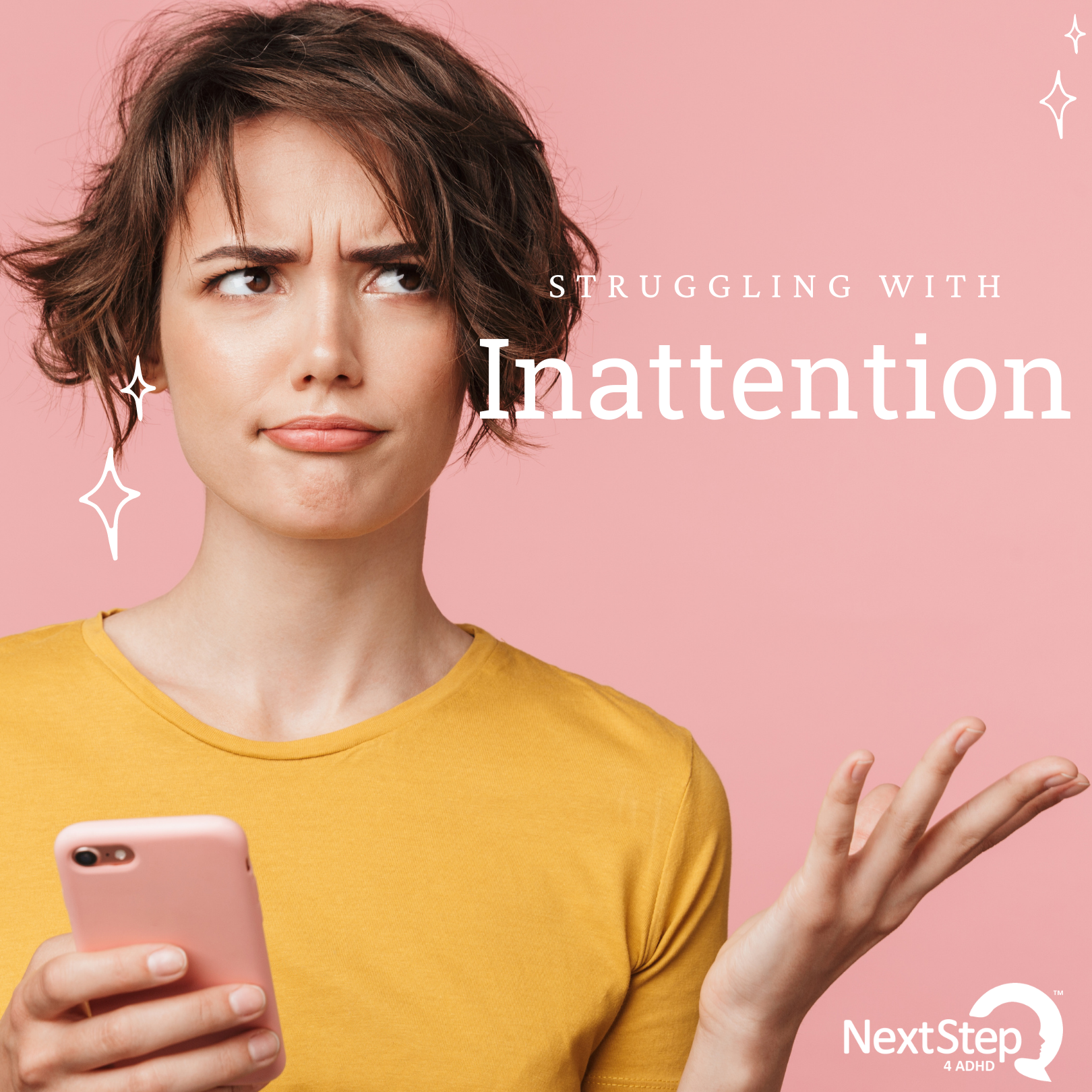
Understanding the Inattention Symptoms of ADHD
Do you frequently misplace your keys or phone? Do you struggle to stay organized at home and at work? Do you struggle to follow instructions? Do you “space out”? These are just a few signs of inattention — and for those who are diagnosed with predominantly inattentive ADHD, inattention can derail your life.
Attention deficit hyperactivity disorder (ADHD) is well-known for causing hyperactivity, but inattention can be just as problematic. While ADHD symptoms can include hyperactivity, that’s far from the only symptom of ADHD. It’s possible that inattention is your main ADHD symptom, particularly if you have predominantly inattentive ADHD. But how do you know if inattention is keeping you from reaching your potential?
Here at Next Step 4 ADHD, our team of compassionate providers are experts when it comes to diagnosing and treating ADHD, regardless of whether you’re struggling with inattention or hyperactivity (or both). If you’re struggling to focus, we recommend that you visit us for an evaluation.
In the meantime, continue reading this article to learn more about inattention.
ADHD and Inattentivness

According to the American Psychiatric Association’s diagnostic criteria listed in the Diagnostic and Statistical Manual of Mental Disorders, there are nine signs of inattentiveness associated with ADHD. They include:
- Trouble staying focused on tasks (both at home and at work)
- Making careless mistakes (if you didn’t pay close attention to the details)
- Frequently missing deadlines and appointments
- Being easily distracted
- Frequently failing to follow through with projects
- Difficulty keeping up with routine chores (e.g. paying bills, returning emails or phone calls)
- Frequently avoiding tasks that require long periods of mental focus (e.g., preparing big reports at work, filling out long forms, or tackling time-consuming projects around the house)
- Frequently losing items (e.g., keys, phone, remote)
- Frequently hearing from friends or family that you’re not listening even when they speak directly to you
You don’t need to demonstrate all nine of those signs, however. According to researchers from Cleveland Health, you only need five out of the above nine symptoms to be diagnosed with inattentive-type ADHD.
Is ADHD the Only Cause of Inattention?
No, ADHD isn’t the only cause of inattention. Other non-ADHD causes of inattention can include side effects from medication, extreme fatigue, and other underlying medical conditions such as hypothyroidism.
Can Inattention and Hyperactivity Coexist?
Yes! ADHD isn’t characterized by inattention or hyperactivity. It’s possible that you or your child report symptoms of inattention and hyperactivity. If you experience both inattention and hyperactivity, you might have a different type of ADHD — the combined type. According to the experts at Johns Hopkins, this is the most common type of ADHD.
Is Inattention Holding You Back?
If you’re struggling with inattention, it can affect all facets of your life from home to work to your personal relationships. The good news is that ADHD is treatable, and with the right treatment, you can reclaim control over your life. ADHD treatment includes medication, lifestyle changes, coaching (group, individual, and parenting coaching), and therapy — all of which is available here at Next Step.
If you have questions about ADHD or would like to explore your treatment options, give us a call at 502-907-5908. You can also request an appointment here.
Learn More
10 Strategies to Strengthen Your Relationship with Your Child
Are you tired of nagging your child? Do and your child squabble over unwanted behaviors? As a parent, your best chance of seeing good behavior from your child with attention deficit hyperactivity disorder (ADHD) is for him or her to feel a strong parent-child connection with you. And the best way to do that is to strengthen your relationship with your child.
Not only is your child more likely to follow your directions if s/he feels strongly bonded, but unwanted behaviors are often an expression of feeling alone or unsupported.
Between work obligations and our increasingly high-tech world, it’s sometimes hard to connect with family members. Both parents and children may struggle to be present to each other.
There’s good news though: you can implement these strategies to be present to one another, to connect with your child, and to strengthen your relationship.
Strengthening Your Relationship with Your Child
Children feel love in many ways. Some children thrive the most with quality time, while others may thrive with physical affection. At the end of the day, children receive a parent’s love in many different ways.

Here are ten strategies to strengthen your relationship with your child:
- Hug your child every day. Snuggling, hugs, a gentle pat on the back — all of these signs of affection let your child know and feel your love.
- Play together. Whether you’re building blocks, playing dress-up, or riding bikes together, quality time a key ingredient in any relationship. Plus, laughing together stimulates endorphin release in both of you.
- Turn off your phone when playing or talking with your child.
- Connect with your child before making a big transition. “Connect” can include using eye contact and smiling, using his or her name, giggling together. Try to connect before just jumping into transitions such as “come eat” or “go pick up the play room.”
- Make one-on-one time a priority each day. Even 15 minutes of parent-child time can do wonders for your child.
- Allow your child to express his or her own emotions. Instead of getting upset that your child is crying or anger, use this moment as an opportunity to teach about emotional regulation — to help your child learn to manage emotions. Remember, your child trusts you enough to share all of his vulnerability and emotions with you.
- Practice active listening.
- Slow down. We live in a busy world, but be sure to try to savor each moment with your child.
- Use bedtime as another opportunity to bond with your child. Read stories, connect, talk about the day.
- Show up. Wherever you are, be all there. Whether you’re watching a game, listening to your child tell a story, or playing a game together, be fully present to your child.
You can also find more positive parenting strategies in our course “Introduction to Positive Discipline.”
Is Parent Coaching Right for You?
What if you implement these strategies and you still feel disconnected to your child? Sometimes unmanaged ADHD can get in the way. If your child’s ADHD isn’t fully managed, we can help your child get the care s/he needs. As a multidisciplinary practice, we offer therapy, parent coaching, medication management, and online course. Parenting coaching can help you learn the tools and strategies that are most likely to benefit your unique situation.
If you would like to book an appointment for coaching, therapy, or medication management with one of our professionals, give us a call at 502-907-5908 or fill out this form.
Learn More
When Homework Troubles Indicate It’s Time for Cognitive and Psychological Testing
If you’re the parent of a child who attends school — either in-person or virtually — you’re probably already used to the flurry of activities that they go through every day. There are new friends whose names you need to remember, appointments with teachers, and of course, there’s all of the homework that needs to be done.
When it comes to homework time with your kids, it can be either incredibly rewarding or incredibly frustrating. You feel rewarded when you’re sitting and figuring something out with your child, and then you finally understand a concept or problem that they’re working on.
But then there come the times when you can feel frustrated because your child feels frustrated as well. These are the times when it seems that they have difficulty paying attention. Sometimes even just starting homework seems impossible.
Why Is Homework So Hard?

If you feel like your child gets frustrated with his homework or schoolwork often and you wonder why, two common disorders might be contributing: The first is attention deficit hyperactivity disorder or ADHD. The second is a learning disability.
ADHD and Homework
Signs of ADHD in a child may include difficulty sitting still, getting started, staying organized, or sustaining their focus/attention for extended periods of time. They might have significant difficulty engaging in doing their homework, or start it only to abandoned it midway.
Learning Disorders and Homework
A learning disorder, on the other hand, is usually focused on a single area rather than everything at once. Your child may have difficulty in one specific area of academics, even though they are good at other areas. For example, your child does well in math but at the same time struggles with reading words. Or it can be that your child can read well but specifically has problems with spelling the words or writing them.
If you think your child has any of these symptoms and has difficulty in school and with homework there are easy methods to find out what exactly they’re having problems with. Sometimes ADHD is the cause; sometimes learning disorders are the cause. And sometimes a child has both ADHD and a learning disorder.
The Role of Cognitive Assessments and Psychological Tests
At Next Step, we are equipped to give you helpful cognitive assessments and reliable psychological tests to identify your child’s strengths, weaknesses, and growth areas. These psychological tests are designed especially for children, and can give a complete picture of their learning processes and intellectual and academic functioning.
Such tests can provide extremely useful information that can help guide teachers and parents in their work with children, serve as a guide for interventions and needed accommodations, and greatly increase your child’s chances for success in life.
Remember, you can learn more with your children when you learn more about them.
If you would like to book an appointment for cognitive assessment and/or psychological testing with one of our professionals, give us a call at 502-907-5908 or fill out this form.
Learn More
New Year’s Resolutions & ADHD: Try a New Year’s Theme Instead
It’s almost 2021… finally! While many people are creating a list of New Year’s resolutions, why not try something different this year? Only 8% of people make it through the whole year with their resolution, and a whopping 80% fail by February.
Keeping elaborate or challenging New Year’s Resolutions can be even harder with ADHD symptoms getting in the way. There’s good news though: instead of setting a massive challenge for yourself, try a New Year’s theme instead.
The Problem with Resolutions
As evidenced by the 80% failure rate, New Year’s resolutions seldom work, whether ADHD is in the picture or not. When “larger than life” goals are set, it’s easy to get swept up in the novelty of it during the moment, but too big resolutions can become too much to keep. Larger-than-life resolutions can be tricky to keep if they get boring, if your schedule changes interrupt the routine, or forgetfulness and inattention creep back in.
Try a New Year’s Theme Instead
While New Year’s resolutions come with the notion that there’s a rubric to measure yourself by, and if you don’t check the box, you fail. For example, if you set the lofty goal to run a marathon in 2021 and run 30 miles each week, you might feel hard on yourself if you don’t reach your goal.
So what is a theme? A theme is like a mantra for the year. Instead of setting rubrics and checklists, a mantra guides you throughout the year. Using a mantra for 2021 eliminates the daily pressure of measuring up to your checklist, and instead creates a more holistic view on self-awareness.
Choosing Your New Year’s Theme

Your mantra for the New Year can be a word, a phrase, or a simple statement like “I want to be more _____________ this year.” By reflecting on your theme, it can influence your day-to-day decisions. Each day-to-day decision you make can help propel you closer and closer to your goal.
To use the running example, your theme could be “I want to be more active this year.” While this doesn’t put so much pressure on your daily life, you can see how this could influence your choices. You might decide to run more often or join a running club, but you won’t feel like a failure if you don’t make X number of miles each week.
Here is another example: let’s imagine that your theme for 2021 is “I want to spend more time with my family.” You can then make decisions based on this theme. You might ask yourself:
- What can I do each day to make more time for my partner or children? (Maybe you build a new evening routine or maybe you wake up 30 minutes earlier.)
A theme isn’t about setting one goal. It’s about adding more to your life. You can still set mini-goals throughout the year to help you continue the theme.
How to Choose a Theme for the New Year
Are you ready to choose a theme for 2021?

Choose a theme, and then come up with a plan to put in place.
— Pam Valdes
Here are a few ideas to get you started:
- A Year of Gratitude: Focus on adopting an attitude of gratitude throughout the year.
- A Year of Self-Care: Focus on staying active, eating healthy, and getting enough sleep. Self-care is a large umbrella, and choosing this theme enables you to create healthy habits that benefit you and in the long-run (rather than setting one specific exercise or weight loss goal). You can start with this free course on self-care: A Happier You Starts with Self-Care
- I Can Tame Stress: Learn to incorporate stress management techniques throughout your day. Support your mental well-being through healthy outlets for stress.
- Time with Family: If your theme is time, you can work on ways to prioritize time with loves ones, build stronger relationships, and strengthening time management skills.
- “I Give Myself Permission to Be Okay Where I Am. I Am Doing My Best.” Learning to be in the moment isn’t always easy, but with this mantra, you can learn to focus on progress over perfection.
- A Year of Organization. Being organized more than just a clutter-free desk; it’s about the mindset and systems that you organize your thoughts.
These are just ideas. Remember, a mantra can be a single word or a phrase or an idea. Your theme can grow and develop over the year.
Putting Your Plan into Action
Once you’ve chosen your mantra for the year, create a plan to put it in place. Coaching may be a particularly beneficial way to help you do this.
If ADHD, or any of its co-occurring conditions, interferes with your plans for the year, know that working with a professional and finding a multidisciplinary treatment plan that works for you is an important step in managing symptoms and living the life you want.
Need More Guidance?
Whether you need help managing ADHD or need guidance putting your New Year’s theme into practice, we can help. Here at Next Step 4 ADHD, we provide comprehensive, multimodal support, including:
- Medication management
- Therapy
- ADHD coaching
- Online courses, including our Planning & Organizing Group Coaching Program which focuses on nutrition
To make an appointment or to learn more, call us at 502-907-5908. You can also request an appointment here.
Learn More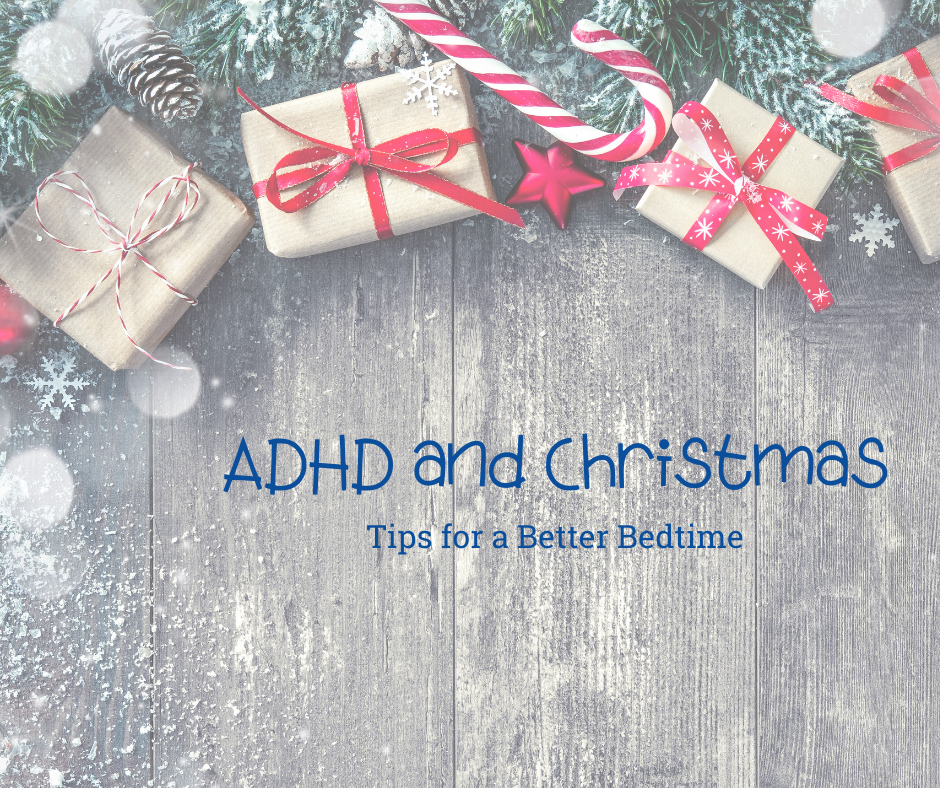
ADHD, Christmas, and Bedtime Routines! Oh My!
Bedtime battles are tricky enough for a child with ADHD, but the added excitement of Christmas can make bedtime even harder.
However, with a little preparation, you can create a peaceful — and Christmasy — bedtime routine for your child.
1. Exercise Is a Must
Exercise? As part of a bedtime routine? Believe it or not, exercise (or any physical activity) during the day helps you sleep better at night. According to Johns Hopkins Medicine, exercise during the day helps you fall asleep faster — and sleep better.
However, make sure your exercise isn’t right before bed as that can actually keep your child more awake. The goal is to get exercise logged in the morning or early afternoon.
Here are some holiday-inspired ways to stay active during the day:
- Go for a walk outside and see if your child can spot any signs of reindeer or elves
- Head to an ice skating rink
- Go skiing or cross-country skiing
- Build a snowman (if you have snow where you live)
You can even have a dance party in your home. Blast the Christmas carol remixed and dance, dance, dance!
2. Stick with Your Normal Bedtime
Children with ADHD thrive with structure and routine, and bedtime is no exception. If your child’s bedtime is usually 8 p.m., then keep that bedtime on Christmas Eve too.
However, you can add a festive touch to his or her normal routine.
- Adding a holiday-scented bubble bath to his or her bath
- Playing classical Christmas tunes during the wind-down period
- Singing Christmas carols instead of lullabies
3. Reading Christmas Books at Bedtime

Is reading to your child part of his or her bedtime routine? Reading to your child improves their language skills, teaches empathy, improves their vocabulary, but — most importantly — it’s a cozy time to bond with your child.
On Christmas Eve, read holiday-themed books to your child to help him unwind and soak up the lessons and stories about Christmas? Whether you read The Nutcracker, The Night Before Christmas, or The Polar Express, reading Christmas stories is sure to be a favorite holiday tradition.
4. Skip the Cookies, But Keep the Milk
Does your child leave out a plate of delicious Christmas cookies for Santa? While Santa might love the cookies, a sugary cookie isn’t the ideal bedtime snack for a child. You don’t have to skip the milk though. In fact, a warm glass of milk might even help your child fall asleep!
According to research, milk promotes restful sleep because it’s rich in melatonin and tryptophan. These are two sleep-inducing amino acids. For a special Christmas treat, sprinkle a little bit of cinnamon on top of the milk. Just be sure to avoid cinnamon-sugar.
5. Avoid Blue Light
Blue lights — the kind of light that your phone, tablet, or TV emits — can interfere with sleep. That’s because blue lights stimulate your circadian rhythm and tell your body to wake up. Warm-colored lights, on the other hand, are ideal for creating a cozy, soothing atmosphere right before bed. You might even notice that your phone or tablet has a night mode, which changes your screen from blue light to a warm, orange color.
Avoid blue lights for 1-2 hours before bed. Cozy up around the fireplace and read some Christmas stories!
More Sleep Hygiene Tips
You can read more about sleep tips in these articles:
What is your favorite Christmas Eve bedtime tradition?
Learn More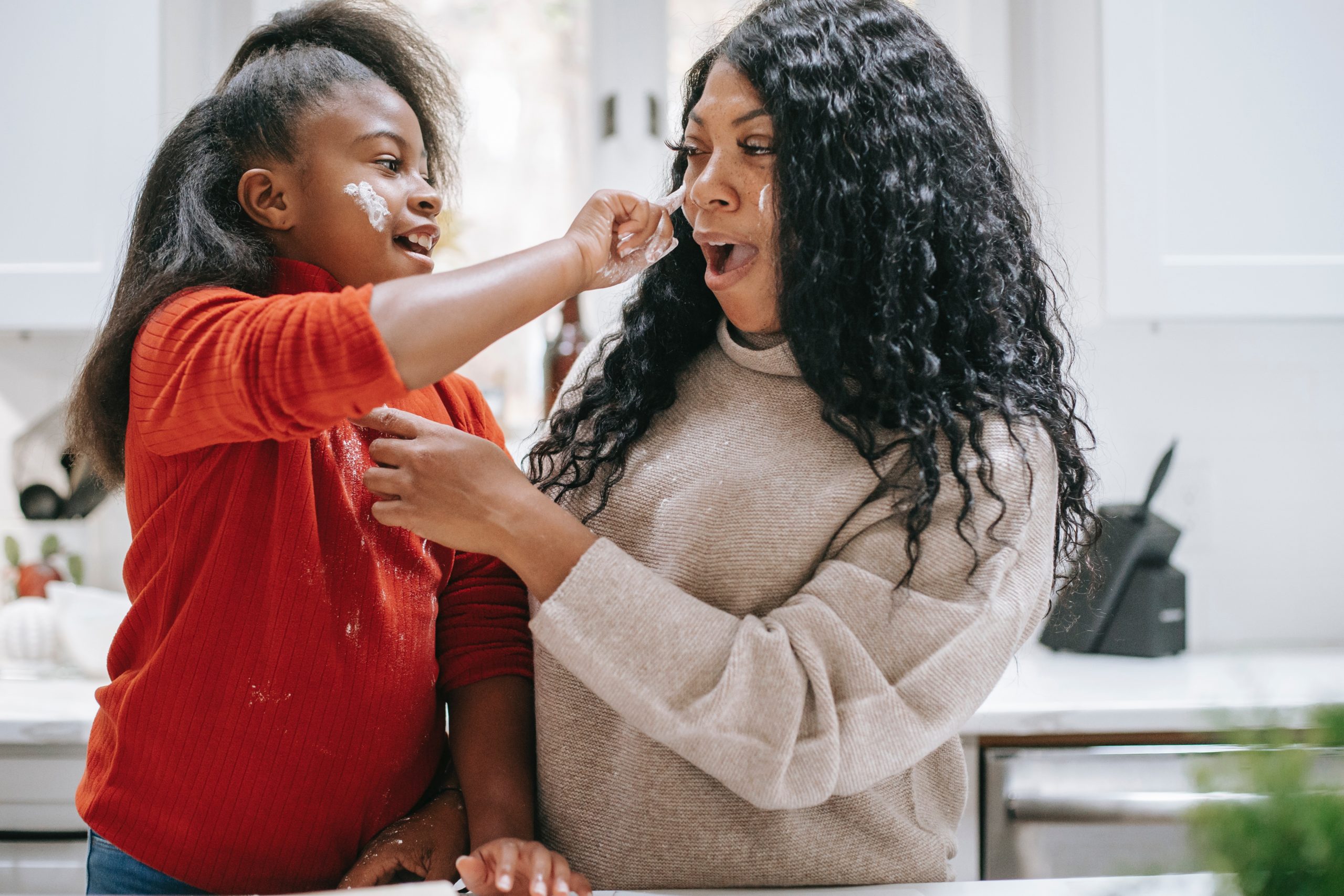
5 Criteria for Positive Parenting with Dr. Jane Nelsen
Are you looking for new methods to teach your child self-discipline, problem-solving skills, and cooperation? Punishments and permissiveness aren’t the answer, but positive discipline can be the solution you’re looking for.
In this article, we’ll explore the five criteria for positive parenting as well as useful phrases to use in day-to-day parenting situations.
Positive Parenting Criteria
Positive discipline tools and strategies must:
- Be kind and firm
- Help a child establish a sense of belonging
- Work with the long-term in mind
- Promote valuable social skills and life skills
- Instill a sense of “I’m capable” in the child
Be Kind and Firm
“When you’re kind, you’re respectful to the child. When you’re being firm, it’s respectful to the needs the situation,” says Dr. Nelsen.
- Too kind (and not firm enough) = too permissive
- Too firm (and not kind enough) = too controlling
Positive discipline finds the balance between being too permissive and too controlling.
Helping Your Child Establish a Sense of Belonging
We all want to feel a sense of belonging and significance. If children don’t feel significant, they might look for this sense of significance in the wrong places: revenge, giving up, or undue attention through negative behaviors, etc.
Focusing on Long-Term Goals
Punishments may work in the short-term, but punishments may have a negative impact for the long-term. Studies show that physical punishments have negative long-term effects, including increased aggression, increased risk of depression, lower intellectual achievement, poor parent-child relationship, and increased negative self-talk.
On the other hand, positive discipline is associated with positive long-term goals, including stronger parent-child relationship, better academic achievement, decreased risk of depression, increased positive self-talk, and more positive social skills.
Promoting Valuable Skills
Positive discipline methods can teach self-soothing skills, problem-solving skills — all valuable skills that benefit your child for the years to come.
Instill a Sense of “I’m capable” in the child
When your child feels capable, it sets your child up for a successful and bright future. This helps to build a growth mindset. You can learn more about growth mindset in this article: “What Is a Growth Mindset?”
10 Positive Parenting Phrases to Use with Your Child

Positive discipline is parenting philosophy based on empathy, a good relationship between parent and child, and freedom within limits. Everything you do is based on cool confidence, responding (not reacting) to your child, establishing (and keeping) limits, and doing all of this in a positive, warm atmosphere.
Positive parenting isn’t punitive; your child is learning to be a human. It’s not you versus your child.
You’re on the same team.
Positive discipline can be applied to any situation in your home. If you’re new to positive discipline, here are 10 phrases to try when dealing with a variety of scenarios.
- “Please talk quietly.” (Note: instead of using a demanding phrase like “No shouting!”, this is a positive request to please do something (in this case, talking) in a specific way.)
- “I completely understand why you would feel frustrated. It sounds like you were hoping we could go get a tasty treat after your online class.”
- “I really want to give you my full attention, and I’ll be able to do that in about 10 minutes when I’m finished washing these dishes.”
- “How can I help you through this?”
- “Let’s take a deep breath.“
- “That was really scary (sad/disappointing/frustrating); it’s okay to cry.”
- “I get angry too, and that’s okay, but we need to remember to follow the safety rules.”
- “Would you like to try it on your own first?”
- “Can you please open your mouth?” (For instance, if you’re helping your child brush his/her teeth, note how kind this request is. Avoid “open your mouth now” as that isn’t very kind. If your child resists help and you must brush his/her teeth, you can continue to apply positive statements such as “I know you don’t enjoy this. I hear that you’re upset, but brushing your teeth is very important because…” )
- “We all make mistakes. What did you learn here?”
- “It’s okay to feel how you feel.” (You can learn more about emotional regulation here.)
- “What do you need to do before we’re ready to leave?”
- “I really like the way you handled that situation. It made a big difference.”
- “Can you try that again?”
What happens when your child resists? Resisting brushing teeth, getting dressed, or getting ready for school can be trouble spots for many parents. Preventive measures can go a long way in avoiding a potential headache. Schedules, routines, and lots of heads up can help your child cooperate. If your child still isn’t thrilled about X, Y, Z, remember to demonstrate empathy. Kids want to know their feelings are validated.
For example, you might say, “I see that you really don’t want to attend school today. I’m going to go finish making your lunch, then we can get set up for school together.” Sometimes, hearing that their emotions are heard and validated is all it takes.
Positive Discipline & ADHD
At Next Step 4 ADHD, we have board-certified physicians and doctorate-level psychologists who specialize in diagnosing and treating ADHD. Not only do we treat children with ADHD, but we also support parents on this journey too. Whether you need parent coaching or additional resources, we can guide you with your next steps.
Call us at 502-907-5908 or use this form to book an appointment with one of our specialized physicians or therapists.
If you don’t get help from us, seek help from someone with significant experience and expertise in treating ADHD.
Learn More
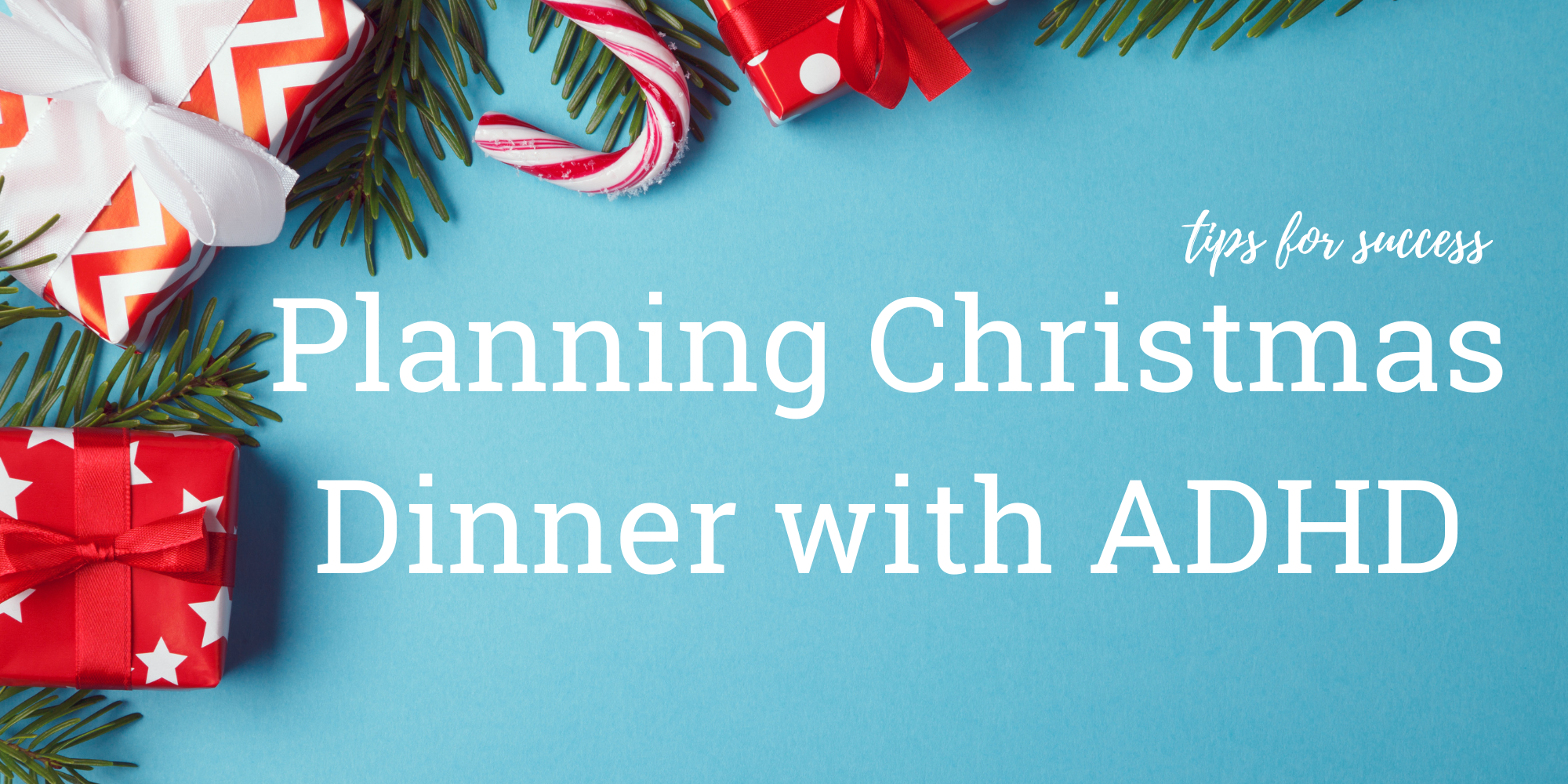
Planning for Christmas with ADHD? Tips for Success
Organizing and planning can be challenging tasks for adults with ADHD — and those are two skills necessary to plan for Christmas.
Thankfully, executive function skills — which include planning and organization — are teachable skills. And that means holiday planning (including getting presents ready and planning a meal) is within your reach.
Here’s what you need to know:
First Things First: Make a Plan!
Organizing your thoughts and goals for the Christmas Day is important, but planning for Christmas includes more than just Christmas dinner. You’ll likely need to coordinate gift buying, wrapping, organizing schedules, and more. To organize holiday events, you might benefit from using a paper planner or notebook to get organized. You can keep lists for various tasks including:
- Gifts (who to buy for, what to buy, etc.)
- Upcoming holiday events (events for your child’s school, etc.)
- Family holiday activities (such as driving around town looking at lights, etc.)
When it comes to planning Christmas dinner with ADHD, use a journal to plan your menu. Be sure to plan for all components of your meal, including:
- The main dish
- Vegetables
- Starches
- Side dishes
- Appetizers
- Bread or rolls
- Desserts
- Beverages
Creating this master menu is step one in managing your time on Christmas Day. For example, you might choose to make some of these items the day before Christmas.
Need inspiration? Here’s a list of 100+ tasty Christmas dinner ideas.
Prepare for Your Grocery Trip
Planning for a big event like Christmas dinner can seem daunting especially when your ADHD symptoms ― poor time management, inattention, difficulty organizing —start infiltrating your grocery shopping trip. Another ADHD symptom ― impulsivity ― makes grocery trips particularly difficult.
The best way to combat these challenges is to prepare for your grocery trip. Trying to plan a meal for a large party is difficult without planning, whether you have ADHD or not.
Before you even head to the store, you’ll need:
- A grocery list (including any items you need for the party e.g., paper plates, candles, décor)
- A designated time to shop (trying to squeeze in a large shopping trip isn’t ideal… allot plenty of unrushed time to shop)
- A full belly (shopping on an empty stomach increases your risk of impulsive buys and deviations from your list)
Tips for Making Your Grocery List
- Always write your list down, either on paper or in a digital grocery app. This will help eliminate forgotten items.
- Include quantities of items e.g. two cans of pumpkin puree or one 32-ounce can
- Be specific e.g. bread flour versus cake flour
- List out ingredients for a recipe e.g., instead of writing “pumpkin pie stuff” write two cans of pumpkin puree, eggs, two boxes of pie crust mix, 1-ounce jar of pumpkin spice mix, 1 pint of heavy whipping cream… and so on
Use Your Calendar
There’s a lot going on in the days leading up to Christmas Day, and a calendar can you keep track of everything you need to do.
If time management is especially difficult for you, a calendar is even more so important.
You might use your calendar to create a schedule for:
- Setting out the turkey — some turkeys need days to thaw. You can check here.
- Setting the table
- Preparing any side dishes prior to Christmas Day
- When to start baking
- When to put beverages in the fridge
- When to start cleaning for guests (you might start your cleaning days before Christmas Day and focus more on baking closer to the big day)
- When to wrap presents (tip: doing it days before Christmas can help prevent a stressed, late-night scramble on Christmas Eve)
A well-organized calendar can help prevent last minutes scrambling.
Delegate Tasks
Just because you’re hosting Christmas dinner, doesn’t mean you have to do it alone. Delegating tasks, even small ones, can help the day run smoother.
Ideas include:
- Giving small (but well-defined) tasks to your children
- Be specific: instead of asking for “help” ask for specific help e.g., “sweep the dining room” or “write names on the place settings”
- Ask for friends or family members to bring a side dish (but write this on your menu so you can keep track!)
Delegating doesn’t just mean friends or family helping you. You might delegate or receive help in other ways too. This might include hiring a cleaning service to clean your house the day before Christmas Day, or you might order pies from a local bakery. Note that these all require pre-planning so if you think you’ll outsource help, start the preparations well in advance.
Don’t Overestimate the Power of Simple

If you feel overwhelmed, try to focus on simple things. If the thought of roasting a whole turkey overwhelms you, try a turkey breast instead. If the idea of juggling oven time between pies and rolls is too much, go for simple. Order rolls from a bakery to free up some space.
At the end of the day, Christmas is about coming together as a family and celebrating the holiday. Love, joy, and things we are thankful for in life play a big role on this day — and a simple meal can be part of that.
Tools to Help You Plan
Here are a few suggestions to make planning for Christmas even easier:
- Online or paper calendar
- Online or paper grocery list
- Online grocery delivery services (Some grocery stores offer delivery, but you can use other apps like Instacart too.)
- The number to the Turkey Hotline! If you have a cooking problem, the Butterball Turkey Hotline can help! (And even if you’re not making turkey, there are other “cooking hotlines” available. King Arthur also has a baker’s hotline.)
Enjoy the Day!

No matter how the day unfolds, remember to cherish the memories and celebrate those you love! If something goes wrong, or an ingredient goes missing, take a deep breath, center yourself, and carry on.
Need Extra Help with Planning and Organization?
Christmas isn’t the only time ADHD can impact planning. If you’re still feeling overwhelmed with planning and organizing tasks, we can help. Here at Next Step 4 ADHD, we provide comprehensive, multimodal support, including:
- One-to-one ADHD coaching
- Medication management
- Therapy
To make an appointment or to learn more, call us at 502-907-5908. You can also request an appointment here.
Learn More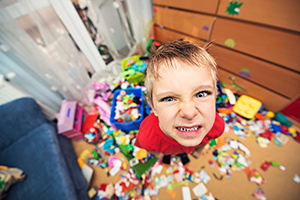
Is My Child Too Young for ADHD Treatment?
If your child has debilitating inattention or hyperactivity, you might wonder if your child has ADHD. This leads to another question: “Is my child too young for ADHD treatment?”
No matter how old your child is, when symptoms of ADHD appear, treatment with either therapy or medication should be considered if a child is experiencing impairment, or lack of success, in either the home or the school environment. The goal of ADHD treatment is to help children be successful at both home and school — and prevent significant negative outcomes that often occur when ADHD is left untreated.
In this article, we’ll answer your questions including:
- Does your child demonstrate ADHD symptoms?
- What age is ADHD treated?
- Are there consequences of delaying treatment?
What Age Can a Child Be Diagnosed with ADHD?
According to the American Academy of Pediatrics, children aged 4-18 can be diagnosed with ADHD. Earlier guidelines stipulated that only children 6+ could be diagnosed, but newer guidelines now include preschoolers. You can read more about the AAP’s guidelines here.
Behavior therapy is the first type of treatment the AAP recommends for 4-year-olds. Other lifestyle modifications for younger children may include:
- Eating a nutrient-dense meals
- Getting regular exercise
- Establishing and keeping a bedtime routine
- Establishing routines and schedules throughout the day
Does Your Child Have Symptoms of ADHD?
Younger children, especially preschoolers, tend to be more hyper. They also have shorter attention spans in general. However, if hyperactivity and inattention are preventing your child from thriving, it’s worth considering an ADHD evaluation.
Many children with ADHD start to demonstrate more symptoms during elementary school when sitting for prolonged periods makes things like inattention and fidgeting more noticeable.
Is your child living with ADHD? Take this quiz to learn more:
This quiz does not constitute medical advice or a diagnosis. An accurate diagnosis can only be made through a clinical evaluation. Regardless of the questionnaire results, if you have concerns about diagnosis and treatment of Childhood ADHD, please discuss your concerns with your physician.
What Are the Consequences of Delaying ADHD Treatment?
Many people think ADHD is a condition that simply causes school children to have trouble paying attention or have difficulty staying in their classroom seats. But in reality, ADHD impacts every aspect of an ADHD child’s lives all the way into adulthood. Failure to assist children with developing skills to help them cope with ADHD can have a profoundly negative impact on their lives well beyond school.
Unfortunately, ADHD does not just impact children. When ADHD is left untreated many children grow into adults who still struggle to plan effectively, make impulsive decisions, fail to consider the consequences of their decisions, are more prone to accidental injury including motor vehicle accidents, and often fail to follow through on projects and reach goals.
Research has repeatedly demonstrated that after living with untreated ADHD, adolescents and adults are more likely to both abuse and become addicted to alcohol and drugs, more likely to have early (and often unprotected) sex, and more likely to be expelled from school. People with ADHD often struggle become productive members of society, often find it difficult to keep a job, stay married, parent consistently and some have difficulty staying out of jail.

Children with ADHD have many unsung strengths that are often unable to fully develop without treatment that helps them develop routines, adaptive skills, motivation and problem-solving skills. Their creativity, ingenuity and intellect is often stifled by the demands of today’s school system and lack of adequate one-on-one attention. With proper treatment, these children can reach their potential and become successful in any career they desire, from financial consultant to engineer to corporate executive.
We know that ADHD as well other psychiatric conditions are treated more easily in childhood. Through specialized treatment, children with ADHD can begin to develop life skills, learn to control their impulsive behavior, experience improved relationships with their peers, parents and siblings, and can become much more successful in life overall.
Many parents are very hopeful that no matter what experiences and issues children have that they will still be able to grow into successful adults and grow out of their behavior or ADHD “problems”. Many kids are able to have some degree of success without treatment and thankfully many kids are resilient enough, bright enough or just plain lucky enough to be able to avoid the more extreme negative consequences of inadequate treatment. But children can be much more successful how more successful if they are given tools at a very young age to be able to learn to harness the amazing potential within the ADHD brain.
Resources for Parents
The first step in any treatment program is education — learning as much as you can about ADHD. Below, we’ve curated a list of articles and courses to help you learn more about ADHD as well as strategies for helping your child thrive.
Other Articles
- 5 Signs ADHD Is Impacting Your Child’s School
- 5 Art-Based Activities to Keep Hyperactive Kids Busy
- 7 Tips for Creating a Homework Station for Your Child with ADHD + Printable Homeschool Schedules
- Top 5 Calming Apps for Children (And What to Use as an Alternative)
- Five Ways to Improve Emotional Regulation
- 8 Tips to Help Your Child with ADHD Thrive with E-Learning
- 9 Parenting Tips to Survive and Maybe Even Enjoy Social Isolation With Your Children
- What Is Growth Mindset?
Courses
- [free] ADHD 101: Video Series for Parents
- Childhood ADHD e-Course: What Every Parent Needs To Know
- [free] 10 Strengths of ADHD
Take Your Next Steps
At Next Step 4 ADHD, we have board-certified physicians and doctorate-level psychologists who specialize in diagnosing and treating ADHD.
Call us at 502-907-5908 or use this form to book an appointment with one of our specialized physicians or therapists.
If you don’t get help from us, seek help from someone with significant experience and expertise in treating ADHD.
But children can be much more successful if they are given tools at a very young age to be able to learn to harness the amazing potential within the ADHD brain.

20 Classical Tunes to Improve Focus
Many children and teens listen to “study music” when they work on homework or cram for a test. The music isn’t just background noise — it can even improve your child’s focus.
According to the experts at Johns Hopkins, music can reduce anxiety and lower your blood pressure. It can also stimulate and strengthen areas of the brain that tend to be weaker in those with ADHD. When it comes to music as a study aid, it can support the auditory, motor, and visual/spatial cortices of the brain. These cortices are areas of the brain linked to speech and language skills, math and reading comprehension, problem-solving, attention, and focus.
ADHD & Music: 20 Songs to Learn By
Not all music improves focus the same way however. According to a Bulgarian psychiatrist, Dr. Georgi Lozanov, children and adults concentrate and focus better with the following classical songs. Twenty minutes of listening is all it takes, according to Dr. Lozanov, for the electromagnetic frequency of the brain to shift into study mode, which is better suited for learning.
Johann Sebastian Bach
1. Brandenburg Concertos
2. Fantasia for Organ in G Major
3. Fantasia in C Minor
4. Prelude and Fugue in G Major
Ludwig van Beethoven
5. “Emperor” Concerto for Piano, No. 5
Antonio Vivaldi
6. The Four Seasons
Johannes Brahms
7. Concerto for Violin, D Major, Op. 77
Arcangelo Corelli
8. Concerto Grossi, Op. 2, 4, 5, 8, 11, 12
George Frideric Handel
9. Water Music
Concerto for Organ in B Flat Major, Op. 6, 7
Joseph Haydn
10. Concerto No. 1 for Violin
11. Concerto No. 2 for Violin
12. Symphony No. 101 (The Clock)
13. Symphony No. 94 in G Major
Wolfgang Amadeus Mozart
14. Concerto for Violin No. 5 in A Major
15. Symphony No. 29 in A Major
16. Symphony No. 40 in G Minor
17. Symphony No. 35 in D Major
18. A Little Night Music
Peter Ilyich Tchaikovsky
19. Concerto for Violin, Op. 35
20. Concerto for Piano, No. 1
Still Need Help Focusing?

Even with the best music, you might still need help focusing — and that’s okay. That’s also where we come in. Our multidisciplinary team is skilled in diagnosing and treating ADHD in children, teens, and adults. So whether you’re struggling to focus on homework or work in the office, we can help.
To make an appointment or to learn more, call us at 502-907-5908. You can also request an appointment here.
Learn More